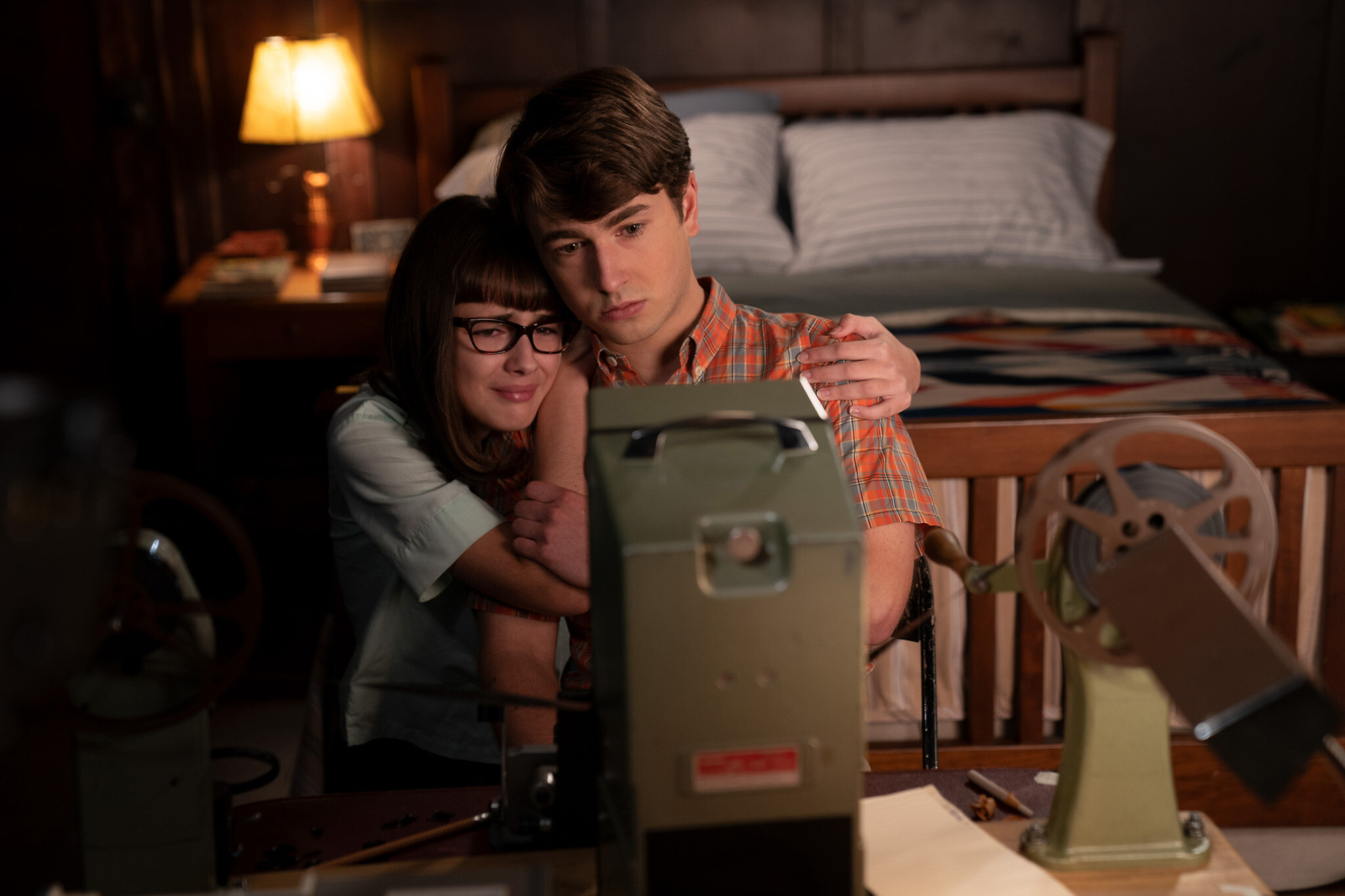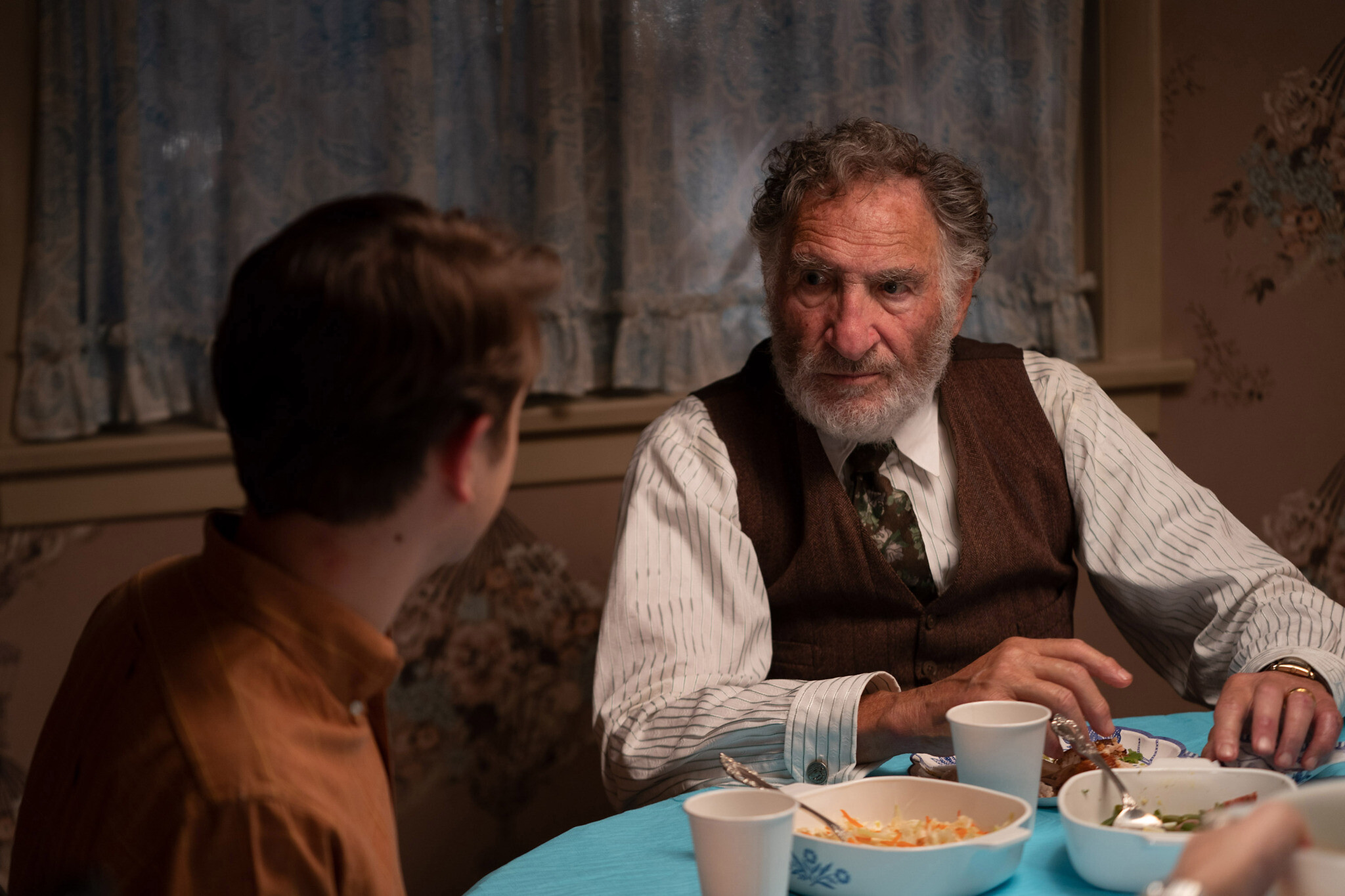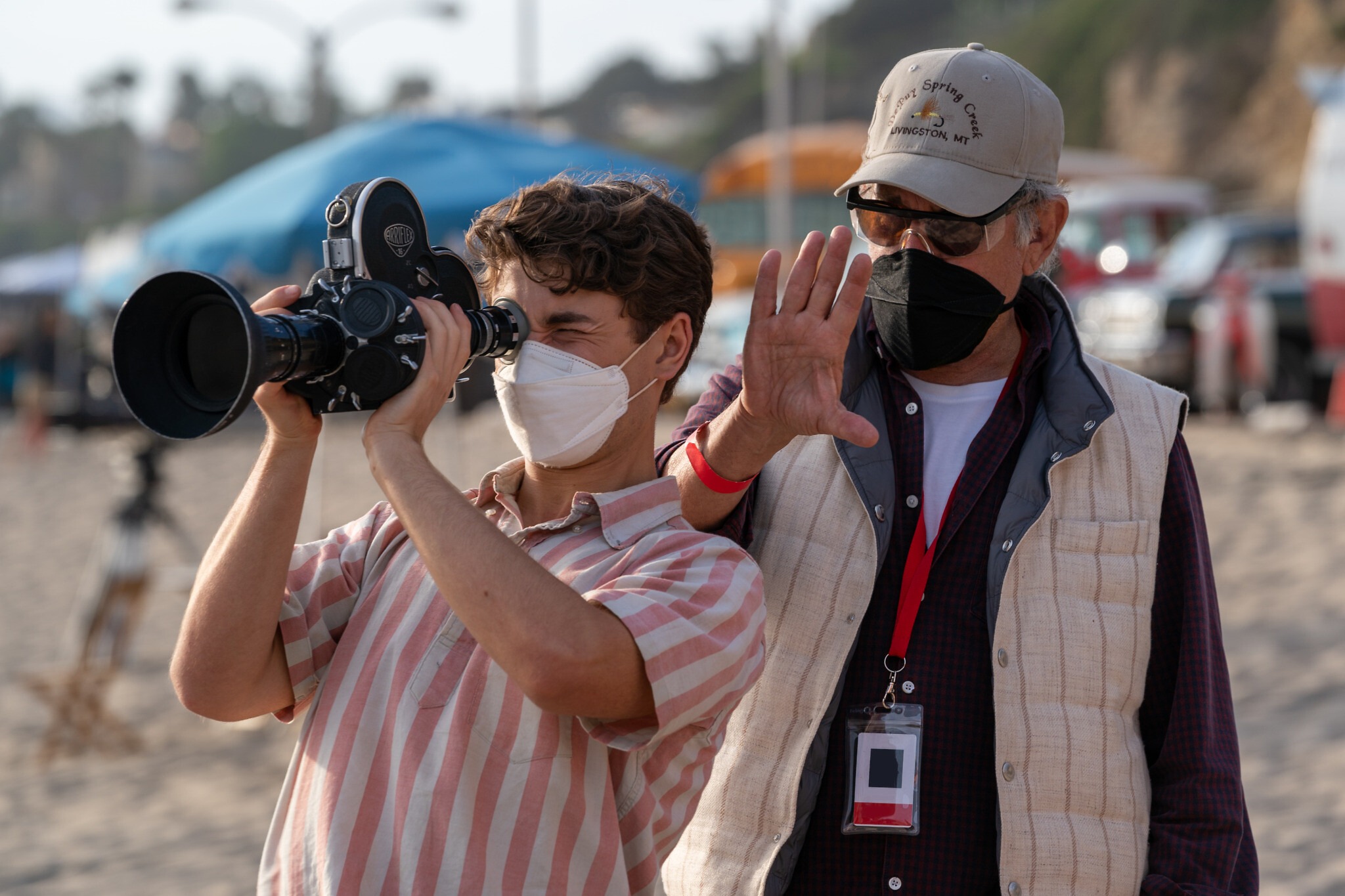NEW YORK – During a recent interview with the HollywoodReporterPulitzer Prize-winning and Tony Award-winning playwright Tony Kushner has revealed the origin of the Fabelman family name, at the heart of Steven Spielberg’s new film.
“Spielberg means ‘game mountain’,” Kushner explained. ‘In Yiddish’Spieler‘ is an actor, and a ‘spiel‘ is a speech or a play. I have always found it extraordinary that this man, who is the greatest narrator of the century, has the name ‘Spielberg’, ‘game mountain’”.
Continuing his reflection, he replaced “ spiel ” by ” fabulous“, the German word for fable, which perfectly describes how this film-memoir by Steven Spielberg is not just a simple autobiography. It’s highly unlikely that a genius young high school student would ever promise anyone that he would keep a secret forever “unless I made a movie of it one day.” It would just be too perfect.
Receive our free daily edition by email so you don’t miss any of the best news Free registration!
“The Fabelmans,” in theaters in New York and Los Angeles since November 11, and released in the rest of North America a week later, is the fourth collaboration between Kushner and Spielberg – but it is the first time that the legendary director takes credit for the co-writing.
Throughout his long career, Spielberg has almost always delegated the task of writing to someone else. But this time, he’s not fixing his camera on harmless aliens or an adventurous archaeologist, or even on the Normandy beach or the Polish concentration camps, but on himself – not just his own family’s singular history, but also on his evolution as an artist and a person. It is a remarkable work of cinematography, one of the best films of the year, unlike any other film in this innovator’s outstanding career.
The film, which lasts two and a half hours, passes very quickly and initially resembles a collection of childhood memories, in the tradition of “Amarcord” by Federico Fellini or “Radio Days” by Woody Allen. It ends up revealing itself not as an examination or celebration of the art of storytelling, but rather as a solemnization. The climax of the film, a Pretzel of contradictory emotions, features the young Sammy Fabelman who discovers his super power: knowing how to think cinematographically, expressing himself in images and editing. But he is still totally perplexed, even intimidated, by this talent. And he is unable to predict how people will react to the magnitude of his work.
Gabriel LaBelle, left, who plays Sammy Fabelman, and co-writer/producer/director Steven Spielberg on the set of ‘The Fabelmans’. (Courtesy/Universal Pictures)
At this stage of his career, he still only makes amateur films. But there’s a lot going on in his house. The oldest brother of three sisters, Sam (played at first as a wide-eyed boy by Mateo Zoryon Francis-DeFord, then as a more confident and lively teenager by the formidable Gabriel LaBelle) is the first to discover that the marriage of her parents are struggling. His camera is a microscope, and as he examines the outlines of his shots, he realizes that his mother (a surprising Michelle Williams) and his “uncle” Benny (Seth Rogen) are very much in love. His father (Paul Dano) suspects nothing.
What everyone knows, however, is that mom (Mitzi) is one of those larger-than-life people – a center of gravity that commands attention in any room (or around a fire). camp) where she is. She’s a special kind of woman who can inspire a child later in life to create a cinematic love letter, even if, let’s be honest, she gave up on her family to pursue her dreams. It is also an indication of the level of maturity and nuance of this story.
In writing classes, it’s often about creating something universal with an emphasis on detail. For many North American Jews, however, the details contained in “The Fabelmans” will be obvious. Beyond the fact that their house is the only “dark” house at Christmas, or that Mitzi refers to herself as ” mamelah “or calls his children” dahlink with a certain irony – or ignoring his mother-in-law’s reprimands, “is that beef brisket? – one finds the tacit, usually innocuous defense mechanisms of “us versus them” that a Jewish family adopts in a non-Jewish environment. “Let them mishegoss from family to home,” the children decide as they prepare to face yet another day of anti-Semitic bullying.

Left to right: Reggie Fabelman (Julia Butters) and Sammy Fabelman (Gabriel LaBelle) in ‘The Fabelmans’, co-written, produced and directed by Steven Spielberg. (Courtesy/Universal Pictures)
We also find in the film the young high school student, proudly Christian, who thinks that she can save Sam’s soul by giving him oral sex; the hormonal adolescent does not contradict her. His bedroom wall is lined with photos of pop music and movie stars of the day, as well as images of Jesus. (There’s also the young Bob Dylan, but at the time few people knew that this earnest musician was actually called Zimmerman.)
There are no bar mitzvah scenes (there are a few gift unwrappings from Hannukah), but the film is full of Judaism. I’d have to check out Lenny Bruce’s legendary issue on Judaism and non-Jews, but the way Mitzi lays out dinner on paper plates on a giant paper tablecloth so I can wrap it all up and clean the room to eat in 15 seconds falls under the sechel (common sense). The official excuse is that she’s a pianist and she has to watch her fingers.
Mitzi’s gift for music is a tragedy only touched upon in this story, one of the paths she did not take. She gave up acting to care for her family – a family she adores, including her husband, whom she admits to being unbearably kind. She admits that when she is sometimes cruel to him, “he buys me a dress”. After a moment, she adds “from Saks,” reminding us, once again, that details are key.
It may sound like a huge therapy session for Spielberg, and if it is, for us viewers, it’s also a huge treat. Much of the film is a frantic race, where 8mm adventure films are made (or the collection of Arizona scorpions to be exchanged for money to pay for filming). There are also plenty of details that exemplify the tactile way movies were once made. Kids with their iPhones will be amazed to see razor blades and glue. There’s a lot of laughter, because it’s part of childhood, even with (or maybe especially with) lots of tears.

Left to right: Sammy Fabelman (Gabriel LaBelle) and Uncle Boris (Judd Hirsch) in ‘The Fabelmans’, co-written, produced and directed by Steven Spielberg. (Courtesy/Universal Pictures)
Judd Hirsch appears in a key scene as the Yiddish sage, Great-Uncle Boris, to lay out some hard truths about art and sacrifice, and while nothing in his speech has been heard a hundred times before, the Hearing in this framework has a declarative meaning. Spielberg’s version of the Gospel of Art. (Hirsch, Jeannie Berlin, Robin Bartlett, and, oddly, David Lynch, are some of the voices that come through during the clutch sequences.)
I’ve seen “The Fabelmans” twice now and I can’t believe how smart it all comes together. What is also impressive is what is not there. There are no corny telltale signs of future Spielberg tropes — no sharks on a beach, or interplanetary lights in the sky, or cracking whips. There is, on the other hand, a great respect for the power of images.
Spielberg took 50 years to make this film. He always instinctively knew where to place his camera and how to make performances stand out. It turns out that one of the best stories he had to tell was the one in his mirror.
We wish to say thanks to the author of this post for this awesome material
“The Fabelmans”, Spielberg’s autobiographical film, is one of his best
Discover our social media profiles as well as other related pageshttps://nimblespirit.com/related-pages/

